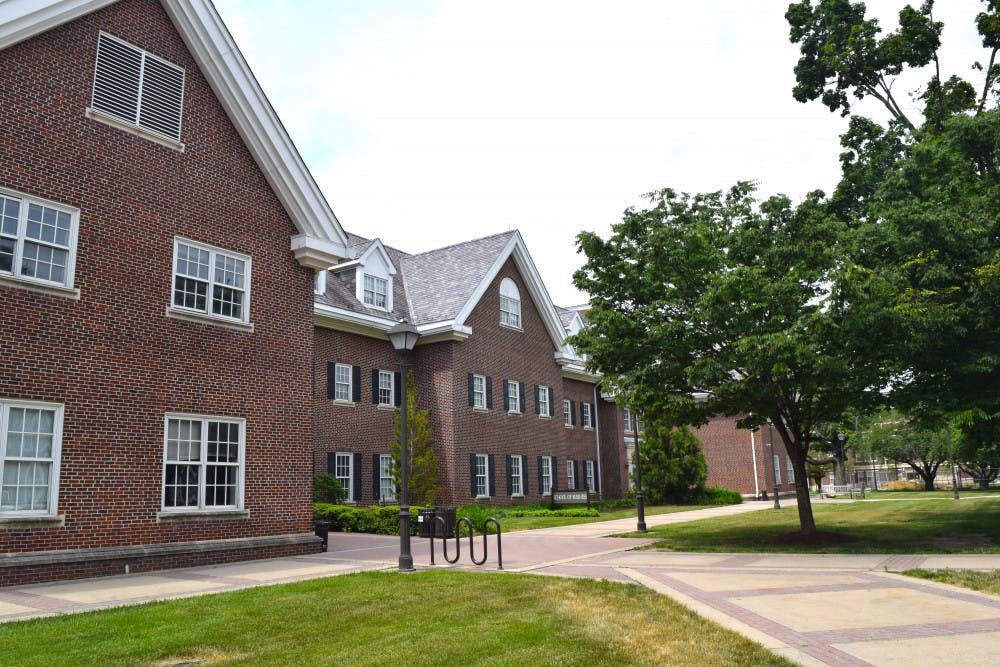By Madison Pena
News Editor
Before March 12, Craig Hollander had never called out sick from work. Nearly a week later, he found himself being one of the first positive cases of COVID-19 in the state.
The otherwise healthy 38-year-old assistant professor of history had been unsure of whether or not he actually had the virus, since his symptoms closely resembled the traditional flu.
“I hadn’t known it could come with other symptoms. I had just read and heard about the respiratory ones,” Hollander said. “Everything I was experiencing, from the chills, headache, dizziness and so on, were much more varied than the ones doctors were associating with the virus.”
Now fully recovered, Hollander reflects on the toll that the virus took on him both emotionally and physically — and he wouldn’t describe it as mild.
“I spoke to my friend, who’s a doctor, and she said that even though I had a fever for two weeks, I was never hospitalized and the only respiratory issues I had was a cough,” he said. “She said I would have been a mild case … and if that’s mild, that’s really scary.”

Hollander’s case was the first sign that the College community was not immune to the harsh reality of the novel coronavirus.
According to Luke Sacks, the head media relations officer at the College, there have been a “small number” of cases reported to the administration by students and faculty alike, yet the full extent of the medical impact of the virus on students, staff and professors — and, in turn, their families — remains uncertain.
Still, the virus has had a major impact on college life: for the remainder of the spring semester, students were stuck at home, attending classes from their homes. Faculty members raced to learn an entirely new way of teaching and adapting assignments for online summer classes. Top administrators have been meeting virtually to determine the financial impact that the change can have on the College, and how classes will resume in the fall, whether virtually or in-person.
On top of recovering from a virus that had him reeling for weeks, Hollander was tasked with teaching remotely for the first time in his career.
“I was not going to pre-judge the process or outcomes, but over the past few weeks I’ve just found it to be completely ineffective,” he said. “Not being able to tell whether or not a student is following along or looking into their eyes to see if they’re confused is tough. This whole experience has just taught me that it matters more than ever to be able to see those things."
For many professors, this switch to online learning mid-semester was an unprecedented one, leaving them to completely rework assignment plans on short notice. And in addition to the pressure of changed curriculums, students and faculty are still grappling with the uncertainty of whether or not they will be returning to campus in the fall.
“I’m really worried. I don’t want to have my senior year cut short,” said Justin Dixon, a junior chemistry and criminology double major. “I miss seeing my friends and others on campus and it’s a lot harder to have classes online.”
Despite the unanswered questions on their minds, students are doing their best to cope while home for the summer — and possibly into the fall.
“Since being home I’ve been running and going on walks with friends,” said Allison Bronander, a sophomore sociology major. “I’m also catching up on TV shows and reading. It’s been nice to have enough time to do those things.”
Though being home has been a source of comfort, Bronander is still feeling the pressure of academics and the uncertainty for the months to come.
“In general, everything is so uncertain,” she said. “I feel anxious a lot, especially about the summer when I’m applying to internships and don’t know if they will happen or if we’ll be on campus next semester.”
In these times of uncertainty and frustration, people are becoming more restless and trying to minimize the problem, according to Hollander. However, he continues to urge people to exercise caution and do their best to reduce the risk of contracting the virus.
“This has a mortality rate,” he said. “Most people are not processing that. This is a serious 1 to 2 percent chance that you don’t make it out.”







